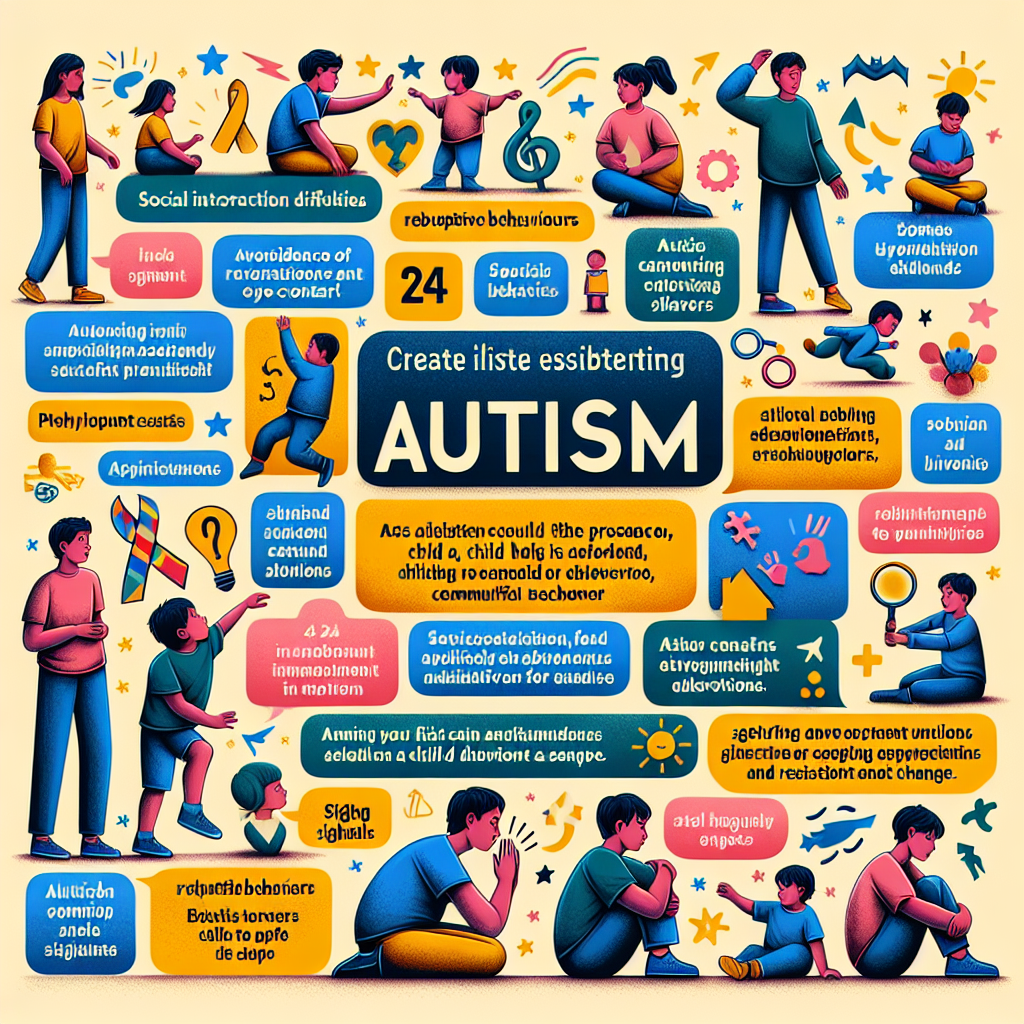24 Signs of Autism in Children: What Parents Need to Know
Introduction Autism is a complex and ever-changing condition that affects a child's neurological development. In this guide, we will discuss the warning signs of autism in children that can help parents detect the condition early. Identifying early signs is crucial because early intervention can make a significant difference in a child's development.
Motor Development The first aspect we will address is motor development. Children with autism may show signs such as delays in reaching motor developmental milestones such as crawling, walking, or hand-eye coordination. Some children may have repetitive movements such as rocking their bodies or waving their hands, known as 'stimming'.
Social Development Another important aspect is social development. A child with autism may avoid eye contact or appear indifferent to those around them. May have difficulty sharing toys or pretend play with others. Also, children with autism may have atypical reactions in social situations, such as lack of emotion or exaggerated compassion without understanding the social context.
Language development When it comes to language development, children with autism may have speech delays or may prefer non-verbal communication. They may also repeat certain words or phrases, known as "echolalia", or have an atypical tone of voice, either robotic or with fluctuating melodies.
Cognitive Development Cognitively, a child with autism may perform exceptionally well in certain areas, such as math or the visual arts, but may struggle with everyday tasks. They may also display unusually focused attention to fine details, but have difficulty seeing the "big picture".
Emotion Regulation Emotion regulation is often a challenge for children with autism. They may have intense or unexpected emotional responses to minor stimuli, or may have difficulty expressing their feelings. Tantrums can occur in response to small changes in daily routine or sensory overload.
Behavioral signs There are also various behavioral signs specific to autism. Children may develop rigid routines that resent being changed, may be overly attached to certain objects, or may have an intense, narrowly focused interest in a particular subject.
Sensory Sensitivity Sensory sensitivity is also common. Children with autism can be hypersensitive or insensitive to stimuli such as sound, light, taste or texture. They may avoid being touched or wearing certain materials.
Eating Behaviors Food can be another affected area. Strict preferences for certain foods or refusal to try new foods are common.
Non-Verbal Communication Even non-verbal communication, such as using gestures to indicate or express needs, may be limited or absent in children with autism.
Reaction to Name Children with autism often do not respond when their name is called, which can be an early warning sign of the condition.
Attitude towards foreigners In contrast to normal social contact, children with autism may show a lack of fear in the presence of strangers or, conversely, may be excessively anxious in social situations.
Play and Imagination Children with autism may have an obvious difficulty in imaginative play or understanding the rules of group games, preferring solitary and repetitive games.
Interests and Activities Sometimes interests and activities are so limited that the child may be reluctant to try new experiences or games.
Routines and Changes Children with autism can be extremely disturbed by minor changes in the daily routine and insist on following a certain order in daily activities.
Interaction with Others Interaction with other children is often problematic, with autistic children having difficulty relating to their peers and interpreting social cues.
repetition Another hallmark is repetitiveness in behavior, with autistic children often exhibiting an obsessive need to repeat certain actions or words.
Reactions to Stimuli Children with autism may have exaggerated or diminished reactions to sensitive stimuli, such as loud sounds or bright light.
Emotional Development Emotionally, these children may be reluctant to seek comfort or show an apparent lack of empathy for the feelings of others.
Sleep and Nutrition And behaviors related to sleep or eating can indicate autism. Children may have difficulty falling asleep or wake up often during the night, and feeding can be a constant struggle.
Conclusion Recognizing these 24 signs of autism is essential for parents. If you notice one or more of these signs in your child, it is recommended to consult a specialist for a comprehensive evaluation. Parents play a crucial role in their children's development, and early intervention can have a significant positive impact. Stay informed, connected and proactive in your children's health and happiness.














































































































































